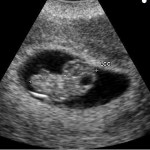Many miscarriages raise the risk of heart attack in women, research says
A new European study reveals that women who had suffered from three or more miscarriages are nine times more likely to have a heart attack or myocardial infarction later compared to those who did not have any. The study, published in the online version of the journal Heart on December 1, examined 11,500 women who were pregnant at least once. Study leader Dr. Elham Kharazmi and his team at the German Cancer Research Center in Heidelberg, Germany, collected data about the women’s diet, lifestyle and their diseases. They recorded the number of miscarriages, stillbirths and abortions among the group. Twenty-five percent of the women had miscarriages, 18 percent have had an abortion and 2 percent had stillborn offspring.
As part of the European Prospective Investigation into Cancer and Nutrition study, the researchers conducted a follow-up of the participants and discovered that 82 had heart attacks and 112 had strokes during the ten-year gap. They calculated that three miscarriages up the risk of a heart attack in women up to nine times while having a stillbirth doubled the risk of a heart attack.
“These results suggest that women who experience spontaneous pregnancy loss are at a substantially higher risk of MI later in life,” the researchers wrote. “Recurrent miscarriage and stillbirth are strong sex-specific predictors for MI and thus should be considered as important indicators for monitoring of cardiovascular risk factors and preventive measures.” The women participants who suffered from stillbirths and miscarriages tended to be overweight, led sedentary lifestyles, and were at most risk for high blood pressure and diabetes. The study is the largest of its kind explaining the link between multiple miscarriages and heart attack in women.
